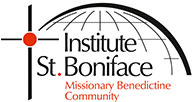
Rwanda
21 members
Rwanda, in the heart of the African continent and one of its smallest countries, is located in East Central Africa just south of the equator. It has about 12.3 million inhabitants, about 1 million of whom live in Kigali, the country's capital. Three ethnic groups share a common language and culture. Additionally, French, and recently English and Kisuaheli, are official languages of the country.
Because of its landscape, Rwanda is often called "the land of a thousand hills". It is one of the poorest countries in Africa, and, with 467 inhabitants per square kilometre, also one of the most densely populated.
Its people are facing many challenges, apart from coming to terms with the genocide of 1994 and its consequences. One of the greatest challenges today, more than ever, is fighting extreme poverty and the climate change, resulting in ever longer droughts and, on the contrary, severe flooding catastrophes. Another problem is securing basical medical care in the rural areas of the country. Numerous social and political problems lead to ever-new laws and regulations, compliance with which is particularly difficult for the poorest. With a seeing and hearing heart, we feel challenged to help and, as far as we can, do something about these problems.

Some focal points of the Institute's work in Rwanda:

- One of our persistent tasks is conciliatory work among a people wounded and burdened by hatred, prejudice and trauma. We try to do this in conversations with individuals, by creating and supporting discussion and prayer groups, as well as by the witness of our international community.
- Always and everywhere, God calls us to sow the good seed of the Gospel: in our pastoral work in different communities, by evangelisation and catechetical teaching, and by our life of "ora et labora", prayer and work.
- In a health and nutrition centre, we are taking over responsibility for sick people. This includes an extensive network of help, accompaniment and support for the families affected, as well as the promotion of projects for particularly marginalised ethnic groups.
- Equal opportunities for children and young people from poor families are very important to us. This has led us to founding a preschool in a rural area, and to accompanying pupils and, if necessary, supporting them financially.
- Wherever we live and try to help, we seek to do it "at eye level" – in a solidarity that does not make people dependent, but on the contrary enables them to help themselves and take over responsibility for their lives once again.
Democratic Republic of Congo
The Democratic Republic of Congo is the third largest state in Africa. It has approximately 86.5 million inhabitants, with about 250 ethnic groups. Apart from French as its official language, four languages are spoken as national languages, in addition to about 200 other languages which are divided into 25 linguistic groups. Sixteen thousand kilometres, as the crow flies, separate the capital Kinshasa and the city of Goma, which lies in the east of the country, in immediate vicinity to the border with Rwanda.
In the north of the city with its almost 2 million inhabitants, the Nyiragongo volcano rises to 3462 m high, and in the south Goma borders on Kivu lake, which is 2650 square kilometres and about 450 m deep.
Goma is not only the scene of all too many natural disasters; it is also a hotspot of the region's political and social conflicts. Innumerable groups of militia and armed clashes between them make the people flee. The prevailing feeling of the population, thus, is one of insecurity and threat. Ever-new slums are growing on the outskirts of the city due to refugees from other parts of the country. Unemployment, poverty and disease are affecting more and more people.
Despite all political and military unrest and the struggles of life in this region, the people's will to live and their hope for peace remain unbroken.


As a community, we try not only to alleviate acute emergencies in our projects there, but also to develop perspectives of hope and future together with the people:
- In the work of our community in Goma, our primary options are for the inhabitants of the slum area of Birere, and for the prisoners in the central prison of Goma.
- At the same time, we take an active part in our parish and its small communities; we share their worries, needs and joys and commit ourselves to pastoral work, e.g. with families or in youth work.
- With the project 'Capacitar', we try to give as many people as possible access to a simple and holistic method to aid them in their extremely unstable situation and the resulting strains. Its exercises are easy to learn and use, and an excellent possibility for countless traumatized people of all ages in the Congo, offering them a chance of healing and peace, of coping with trauma and the stresses of everyday life in this war-ridden country.
